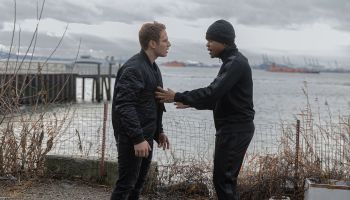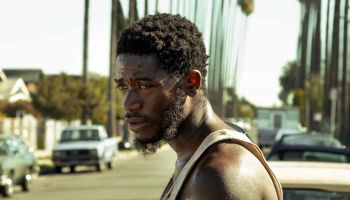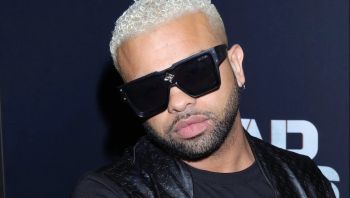In 2009, after setting out to focus on education in her native Liberia, Saran Kaba Jones noticed a major impediment to quality education for children and women wasn’t access, but health. Children weren’t getting the nutrition they needed to attend school, and they were falling ill for extended periods of time because of contaminated water sources. It was, for Jones, a major “ah-ha!” moment in providing the women and children of Liberia a fighting chance.
Jones knew the only way to combat problems involving the education and health of children in Africa was to make the basic necessity of clean water available. Switching gears organically, Jones created FACE Africa to combat Liberia’s growing water crisis and build clean water systems across the country. As the Founder and Executive Director of FACE Africa, a Massachusetts-based nonprofit, it is Jones’ goal to help fund and support sustainable clean water, sanitation and hygiene projects in Liberia and make access to safe drinking water a reality for millions across sub-Saharan Africa.
To date, the organization has raised over $250,000 for new water wells and clean water projects that have benefited over 15,000 residents in Liberia. And on March 22, 2014, UN World Water Day, FACE Africa hosted its 5th Annual WASH (Water, Sanitation and Hygiene) Gala in New York City, raising another $250,000 for the organization.
GlobalGrind sat down with the Goodwill Ambassador for the county of RiverCess, Liberia and a 2013 World Economic Forum Young Global Leader to discuss just how little it takes to provide clean water for thousands, how the crisis is affecting the entire world, and how water and women empowerment go hand in hand.
GlobalGrind: What was the compelling factor that made you say “OK, this is something I want to dedicate my life to?”
Saran Kaba Jones: I was born in Liberia and when I was 8-years-old, the civil war forced my family to flee and two years after that, my father was appointed an ambassador to Egypt which launched an life of travel. We then loved to France and then Cyprus until I settled here in the U.S. in 1999 for college. In 2008, after 20 years, I went back home. That kind of spurred the beginning for FACE Africa. But before that I would give back in my own small way by helping to sponsor a couple of scholarships. My interest at the time was education, but when I got to Liberia, one of the things I started to see was that one of the major impediments to education was the lack of clean drinking water.
Kids were getting sick and not showing up to school for long periods of time because they were drinking contaminated water and even so, as it relates to women empowerment, one of the biggest impediments to women’s growth and development is the lack of clean water. Women and girls are the ones responsible for walking long distances to fetch water. I came to the realization that the basic necessity of clean water had to be met before any other area of development can be tackled. That’s what led me to focus on water, rather than education.
GG: It’s interesting that you made that connection from women’s empowerment to water. In African societies, African women are responsible for the water, but in what other ways are women connected to water and in turn, how does that connect to their empowerment?
Jones: In most African societies, women are responsible for keeping the home running, so they’re the ones farming, the ones going to markets. According to statistics, women spend around 60 percent of their day collecting water and that translates to approximately 110 million collective work hours every day. So when you provide access to clean water and reduce the amount of time that women have to spend walking to collect water, they have more time to focus on education, income generating activities, house-work, or childcare.
Access to water in their communities means not only now do they not have to deal with the burden of collecting water, which has a lot of health implications because these women are carrying over 40lbs of water on their heads and on their backs and sometimes walking up to five miles every day carrying these heavy loads of water, you’re also making sure that they are safer. Because sometimes girls walking long distances by themselves to catch water can be at risk of sexual assualt. So I think it’s a very holistic agenda when it comes to providing safe drinking water and the impact that it has on women and girls.
GG: A clean drop of water can have a ripple effect.
Jones: Right. We view water as a true catalyst for change and it doesn’t just solve the issue of health, but it’s a holistic sort of development issue.
GG: We were looking at some of the specifics about how many children die a year from water-related illnesses. What are some of the issues that Africans are facing since they don’t have clean water?
Jones: The water crisis is not just an African issue, although out of the 700 million people globally who are affected, 350 million are in Africa and the World Bank states that water related illness kill more African children under age 5 than HIV, AIDS and malaria combined. Diseases like diarrhea, cholera, dysentery, and typhoid; those are the four main water diseases that affect people, mainly children. When it comes to kids, 2.1 million of them die as a result of a water-related illness. That’s the entire population of Mexico or Utah. Can you imagine a whole state that dies every year? Kids need clean water to be healthy, to grow and thrive, to attend school regularly, and to fulfill their potential. This issue of clean water is fundamental to the quality of life for children and adults alike. Adding to economic benefit and reducing poverty for all.
GG: Does ‘FACE’ stand for anything?
Jones: That’s actually a really great question. It means Fund A Child Education and just going back to what I mentioned earlier, that I launched this initially to provide the scholarships and educational options to kids back home, but the realities were way different than I imagined. There are other issues in Liberia. I saw that the water issue was way important because it was preventing kids from being healthy and not getting an education. I just felt like it was more of a basic right than education was.
GG: How are the funds distributed and how do they help?
Jones: One of the problems we have in Liberia and all across Africa is the issue of broken wells that were built by NGO’s but there weren’t enough systems in place to maintain the wells, so they just stand idle and are no longer functioning. So one of the main things we do is build new wells and rehabilitate the broken ones. As a result, we take steps to optimize sustainability of all our projects and put a heavy emphasis on training and local ownership. To fix a broken well, it takes about $2,500 dollars. To build an entirely new system, it would cost about $5,000.
When you think about it, it comes to $20 a person. So for a $20 donation, you can give an individual clean water for their lifetime if the systems are taken care of and properly maintained.
For more information on FACE Africa and how you can be a part of Jones’ movement, visit the website at www.faceafrica.org.
PHOTO SOURCE: Keiko Hiromi and Yinka AJ















